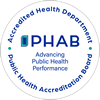
Health
Animal Bites and Rabies
Even if you own the animal or know the owner, it’s important to report all animal bites to us. We’ll help you figure out the risk for rabies or other illnesses from the bite.
If you or your pet is bitten
If you or your pet is bitten, wash the bite well with soap and water right away. If you are injured, see a health care provider as soon as possible. If your pet is injured, they should see their veterinarian as soon as possible. Report the bite. For more information on Animal Bites, click here: Dog-Cat Bites. For information on how rabies is transmitted, click here: Clinical Overview of Rabies | Centers for Disease Control and Prevention
How to report a bite
It is important to find the animal that bit you or your pet. We need to know if it has been vaccinated for rabies or has rabies. Call dispatch at (608)782-7575 and say you are calling to report an animal bite. If you do not know the animal's owner, or it was a stray or wild animal, tell them as much as you can to help us find it. Include what it looked like, where you saw it, and if you've seen the animal before. For more information on Animal Bites, click here: Dog-Cat Bites
If you or your pet is bitten by a dog or cat
Check to see if the bite broke the skin before the owner leaves. Do not wait to check until you get home. Ask the owner to call their vet to find out if the pet is up to date on rabies shots. Exchange names and phone numbers with the pet's owner. Any dog or cat that bites will be quarantined for 10 days and checked by a trained observer for signs of rabies. If there are no signs of rabies after 10 days, you and/or your pet do not need post exposure rabies shots. If you can't find the animal that bit you, or it shows signs of rabies, you need to see a healthcare provider for treatment. For more information, click on this link: Rabies Algorithm | Wisconsin Department of Health Services
If you are bitten by a wild animal or bat
Do not attempt to catch the animal unless it is safe. You may try to catch the animal only if it poses no danger of biting or scratching and the situation is under control. For bats, wear thick gloves and place the bat in a secure container with air holes. Contact the Coulee Region Humane Society (CRHS) for guidance. For animals other than a bat, contact your local animal control or Wisconsin Department of Natural Resources (DNR). If the animal must be killed, do not damage the head--rabies testing needs brain tissue. Keep the animal cool, but do not freeze it. Call CRHS before bringing the animal in. They will let you know if they can take it and give you drop-off instructions. Do not show up without calling first. Rabies testing will show if treatment is needed:
- Positive test: Start rabies treatment right away
- Negative test: No treatment needed
- If the animal cannot be caught or the results are inconclusive/untestable, call your doctor as you may still need treatment
Service area note: CRHS provides services throughout La Crosse County except for the City of La Crosse municipality. Residents within the City of La Crosse should call their local animal control or the DNR for guidance.
If your pet is bitten by a wild animal or bat
Do not attempt to catch the animal unless it is safe. You may try to catch the animal only if it poses no danger of biting or scratching and the situation is under control. For bats, wear thick gloves and place the bat in a secure container with air holes. Contact the Coulee Region Humane Society (CRHS) for guidance. For animals other than a bat, contact your local animal control or Wisconsin Department of Natural Resources (DNR). If the animal must be killed, do not damage the head--rabies testing needs brain tissue. Keep the animal cool, but do not freeze it. Call CRHS before bringing the animal in. They will let you know if they can take it and give you drop-off instructions. Do not show up without calling first. Take your pet to a vet as soon as possible for evaluation and care. Your pet may need to quarantine, depending on your pet's rabies vaccination history and the rabies test results. Your vet may recommend further testing if rabies is suspected.
- 60-day quarantine: This is required if your pet is up to date on rabies shots and the animal tests positive or is untestable. A booster shot will be given immediately.
- 6-month quarantine: This is required if your pet is unvaccinated or overdue and the animal tests positive or is untestable. A rabies shot will be given during the 5th month of quarantine.
Service area note: CRHS provides services throughout La Crosse County except for the City of La Crosse municipality. Residents within the City of La Crosse should call their local animal control or the DNR for guidance.
Important: Do not bring rabies suspects to the Health Department
The Health Department does not accept wild animals for testing, including rabies suspects. If you are unsure what to do, call your local animal control, Coulee Region Humane Society, or the Department of Natural Resources for guidance.
Protect yourself and your pets from rabies
In Wisconsin all dogs are required to be vaccinated, and in La Crosse County cats may also be required to be vaccinated. Avoid wild animals and block them from getting into your home by filling openings. Close lids tightly on garbage cans so animals are not attracted to them. Avoid animals you do not know and familiarize yourself with symptoms of rabies. Learn how to prevent dog bites. For more information, click on the following links:
Rabies Algorithm | Wisconsin Department of Health Services
Submitting Specimens for Rabies Testing | Centers for Disease Control and Prevention
Dog bite prevention | American Veterinary Medical Association (avma.org)

Health Department Office Location
2nd Floor, 300 4th St. N.
La Crosse, WI 54601
Main Business Phone: 608-785-9872
Main Fax: 608-785-9846
Email:
[email protected]
In a public health emergency call 911
If you need assistance to access or use information on this website or Health Department services, please let us know
Interpretation services available upon request
Tell us how we are doing! Customer Satisfaction Survey
Office Hours: 8:00am to 4:30pm Monday-Friday; some service hours may vary
Collaboratively promoting a healthful community for all people.
La Crosse County Health Department complies with applicable Federal civil rights laws
and does not discriminate on the basis of race, color, national origin, age, disability, or sex.

